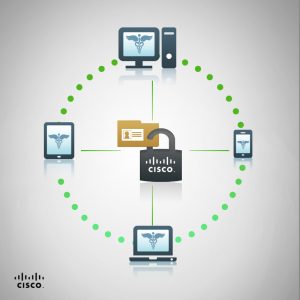
Enabling Digitization in Canadian Healthcare through Secure Infrastructures
 As we continue to see advances in global technology, it’s important to consider how technology will impact the healthcare industry in Canada. What changes will healthcare organizations in Canada need to make in order to embrace the technology surge that is transforming how patients receive healthcare? The need to protect data security and patient privacy is critical.
As we continue to see advances in global technology, it’s important to consider how technology will impact the healthcare industry in Canada. What changes will healthcare organizations in Canada need to make in order to embrace the technology surge that is transforming how patients receive healthcare? The need to protect data security and patient privacy is critical.
A recent survey released by Canada Health Infoway found that 96% of Canadians think it’s important that the health care system make use of digital health tools. Eighty-nine percent feel it is important that they can access and take advantage of their digital medical records and capabilities. Healthcare organizations must consider the importance of a secure network architecture, which is essential when evaluating security requirements such as regulatory compliance, theft and identity protection, and secure applications access.
Key Network Concerns
There are multiple ways in which networks can be designed to meet the security requirements of organizations. For example, modern healthcare facilities today use a complex and diverse set of endpoints that require each computing device on a corporate network to comply with certain standards before network access is granted. The use of wired and wireless devices, combined with the need for immediate and continuous connectivity to the clinical network, provide a challenging set of security requirements for endpoints. Providing secure access to clinical facilities for both the endpoints is crucial in today’s healthcare environments.
Network endpoints are often considered one of the weakest, and therefore most vulnerable, parts of any infrastructure. The protection of the endpoint itself and managing the loss of sensitive data is very important, so you must ensure that endpoints comply with local regulatory security policy. To further complicate things, many providers are moving towards convergence of their clinical, biomedical, and IT infrastructures.
Cisco Medical Grade Network: Built to Optimize all Healthcare Communications
Preventing network security problems from affecting patient care is a critical priority. And it doesn’t stop there. Healthcare organizations need a network foundation that helps enable reliable, seamless, and highly secure health data communications across the healthcare community.
Cisco has created a security-focused Medical Grade Network (MGN) that facilitates and integrates diverse business and clinical communications throughout the continuum of care. The MGN supports communications needs of clinicians, patients, administrators, and partners; regulatory requirements for patient privacy and data security; and identity and policy-based security from inside the network to borderless environments.
It’s clear that healthcare organizations need a scalable and regulatory-compliant connected architecture to meet all healthcare communication needs. To see how you can establish a secure infrastructure for your organization, visit our solutions page.
Tags:


